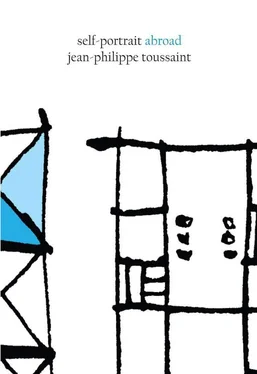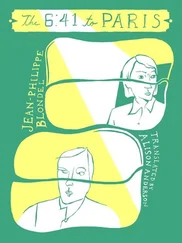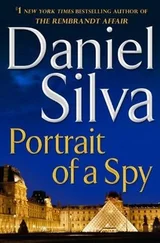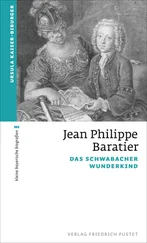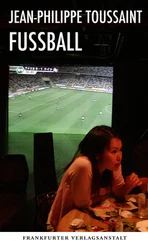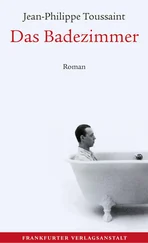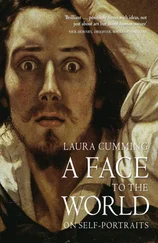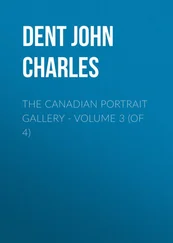The driver, who remained quiet, depressed perhaps by the bleak prospect under discussion, which seemed to have come crashing down on him in all its gloom, asked us after a while if we’d like to stop to have a drink and stretch our legs and, after talking it over in the back of the car, the two women and I, we answered that no, there was no need, whereupon he slowed down and pulled up in front of a roadside café. Here it is, he said. He got out of the car and, leading me informally by the arm, brought me inside and asked what I’d like to drink (the women were apparently not thirsty). A tea, I said. He gave our order to the owner in Arabic. The café was very dark, deserted, there was a certain freshness in the air compared with the burning noonday heat of the road. I drank my tea, a very hot, extremely sugary mint tea. I wondered if I should pay and, unsure, decided not to, wandering absently away from the counter and taking a few steps further into the darkness of the room. An old faded poster showing a soccer team wearing red and green uniforms was tacked to one wall, a couple of trophies that weren’t exactly won yesterday were displayed on a shelf together with a pennant and a few other odds and ends. Slowly I headed over to a blind door marked “toilets” in Roman letters and gave it a discreet push, in vain, it was locked. I left the café, not a sound on the street. The air was burning outside, almost shimmering. I went and took a piss against a wall behind the building then came back out front. From time to time an old tarp-covered car barreled along the highway at top speed, blowing up a cloud of dust as it passed. Here and there in the noonday heat you could catch a glimpse into the cool and welcoming shadows behind the curtains of a few stores lining the road, a bakery, a butcher’s, two or three of those typical little North African grocery stores offering nothing but an enigmatic array of large tins of chickpeas or quince jam, a few bottles of soft drinks in a plastic crate on the floor, and, abandoned near the door, a big burlap sack full of who knows what type of seed. I walked a couple of paces on the sidewalk beside the stores, took a kick at a tin can. Further off, near the car, I could see the silhouettes of my two archaeologists waiting for the driver to return. The eldest was sitting on the back seat, the door wide open, and her colleague was standing beside her, almost in profile, with one elbow on the roof as if she were posing for the cover of a sixties fashion magazine. As I came up to them I saw they were absorbed in the French newspaper I’d bought in Tunis which they seemed to be reading with great interest, the elder holding the newspaper wide open on her lap and the other leaning over from time to time and casually pushing back a strand of hair, while the first, determined, dynamic and undaunted, continued to read the sports page of the newspaper aloud with one hand on her glasses, interrupting her reading occasionally to signal her disbelief to her colleague before closing the paper and sitting motionless for a moment, pensive and distressed, her eyes staring into space and slowly filling with tears, because they had just heard — the news hadn’t reached them yet in Sousse — of the death of Ayrton Senna two days earlier at the San Marino Grand Prix.
We’d set off once more for Sfax in the French Institute’s car and, sitting in the back, I remained silent and was careful each time I moved my feet not to touch the fine green canvas espadrilles of the woman sitting next to me. She was in the middle of explaining to me courteously that it wouldn’t be long before we approached the El Djem Coliseum, without doubt one of the most interesting Roman curiosities in the region, which she would make sure to point out to me when we passed it. The driver kept quiet at the wheel and we continued speeding down the long tree-lined straightaway, keeping our eyes peeled for the El Djem Coliseum. I’d heard about the El Djem Coliseum at a dinner the previous evening and I don’t know why, for some bizarre reason I’d associated the word with a natural phenomenon, a gorge or an erg, something like the Roccapina Lion or Thermopylae Pass. Needless to say we weren’t exactly keeping our eyes peeled for the same thing, the two of us, leaning side by side out the open backseat window, while from time to time I pushed back her long black hair which was flying in the wind and brushing against my face, keeping it out of my eyes and casually detaching a few twisted strands which the wind had blown against my lips. There it is! she cried at last, pointing out the distant silhouette of a small amphitheatre. The El Djem Coliseum, because that’s what it was, was in fact a Roman amphitheatre, plain and simple, all it took was a quick look for me to recognize the word and mentally re-associate it with its appropriate image, a Roman amphitheatre in ruins surrounded by fields, tiny on the horizon, its crown abandoned in the emptiness and worn away with time, toward which we advanced in silence, still a good distance from the site — a couple of miles I’d say — and never getting any closer, either, as the road curved around to avoid it.
When we got to Sfax I said good-bye to my archaeologists and went to open the trunk and fish out the remains of my flexible black travel bag from under the heap of archaeological material they’d piled on top. Holding my bag which was still flexible but now somewhat battered, I crossed the street giving them a polite little wave as the car pulled off, then went into the Abou Nawas Hotel where a room had been booked for me. That very evening, changed and refreshed, I gave my reading at the French Institute in Sfax, introduced and questioned by a renowned Sfaxian academic who was the spitting image of my university friend Romano Pistoletto (Ciccio). This Sfaxian academic and myself were sitting side by side at the head table of a conference room in the French Institute, a makeshift arrangement consisting of a long pale green Formica cafeteria table embellished with a complicated network of electric wires and microphones, next to which two mustard glasses and a large bottle of mineral water had been placed for the speakers. Sitting in light-colored wooden classroom chairs, the audience across from us consisted of around eight or nine people (maybe ten with the organizer) — which is to say that the group was very sparse and most of the rows of chairs put out for the audience remained unoccupied. The director of the French Institute, who was biting his lips at the door on the lookout for hypothetical latecomers, finally decided to open the meeting and, advancing to the podium to welcome the audience and present the speakers, turned the floor without further ado over to my distinguished partner, who, his voice stricken with stage fright, gathered his notes and launched into a detailed study of the themes of my books, which he started to analyze one by one in the chronological order of their appearance. The whole time he spoke, in a clear voice that gradually gained assurance, he fingered his bundle of notes with trembling fingers while, sitting next to him at the head table in a totally creased white shirt which I’d only recently rescued from my travel bag, I listened to him with a serious and concentrated look, my long immobile hands crossed on the table, my eyes traveling alternately from his undeniably Pistolettian face to some particularly attentive (or just strikingly female) member of the audience, resting for a moment on the bottle of mineral water in front of us on the table, which was also quite tempting, I must admit, and which I finally ended up opening noiselessly with the bottle opener put there for the speakers, pouring myself a large glass of mineral water without altogether managing to avoid drowning out the speaker’s voice for a few moments with a fizzy bubbling of liquid. Without losing the thread of his analyses, Ciccio’s look-alike glanced once or twice out of the corner of his eye to see what on earth I was doing. Among the silent and increasingly sleepy group in front of us (who, it must be said, watched me fill my glass with a fleeting burst of goodhearted curiosity), I of course couldn’t fail to notice the discreet presence of my two archaeologists, who’d changed and put on a touch of eye shadow, seated six rows back, attentive and studious, a little worried, it seemed to me, preoccupied, as they listened to Ciccio presenting on the subject of, let’s face it, my really rather wonderful books.
Читать дальше
